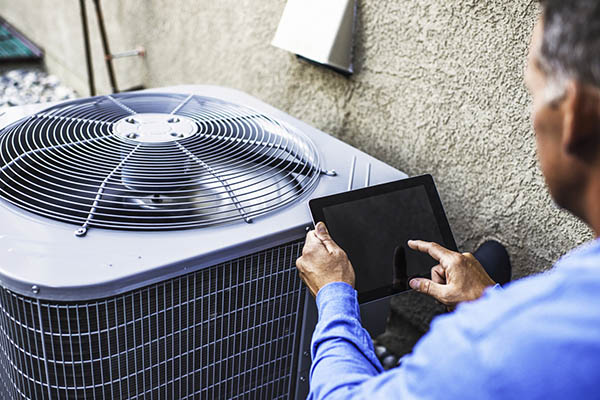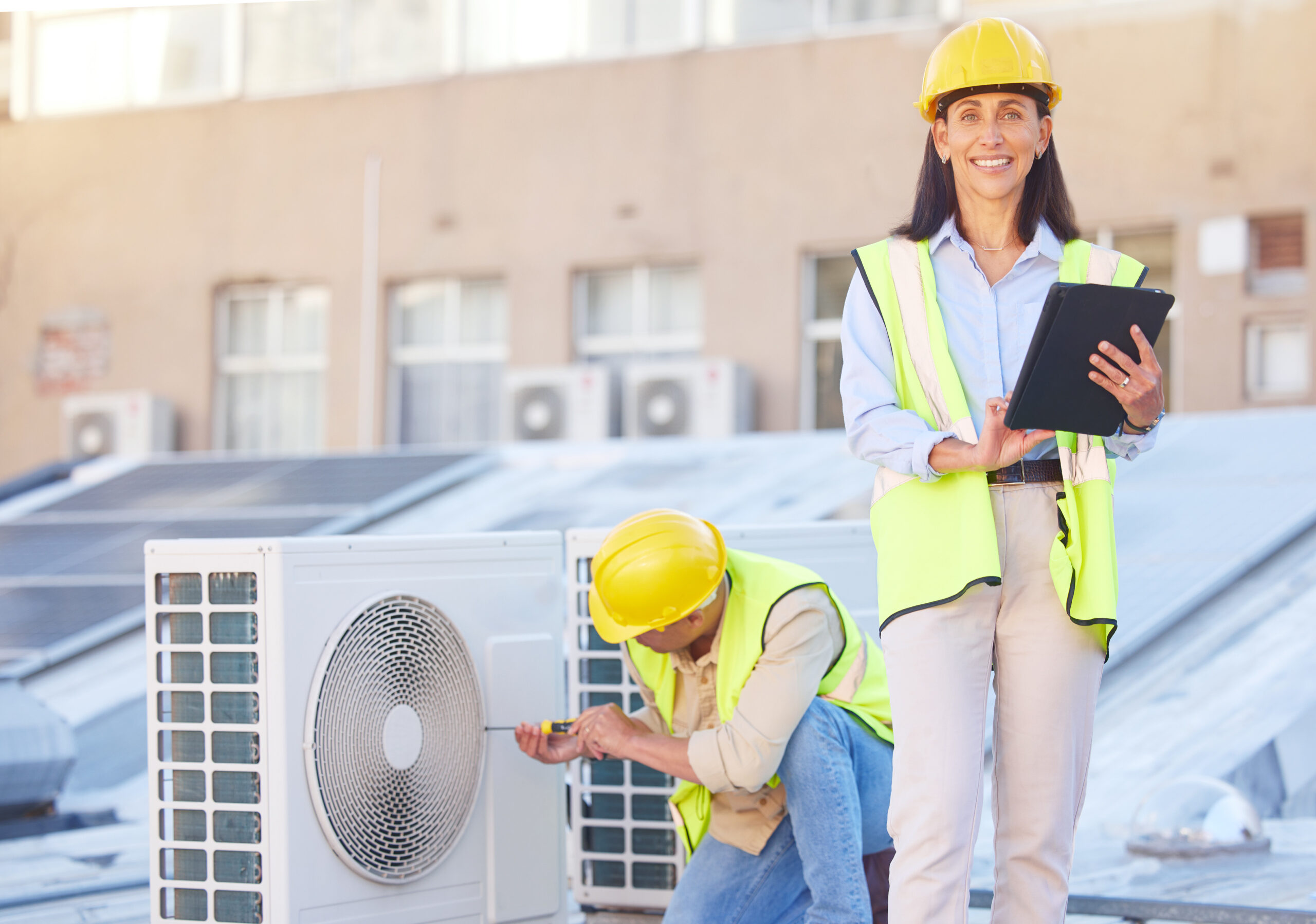Your First Steps with heat pump installation ooltewah tn
Your First Steps with heat pump installation ooltewah tn
Blog Article
Choosing Between a Warm Pump and Heater: Trick Factors To Consider for Your Heating And Cooling Needs
When evaluating heating alternatives for heating and cooling requires, the choice between a heatpump and a furnace can be intricate. Each system offers distinct advantages tailored to details climates and power efficiency goals. Recognizing these differences is essential for making an enlightened choice. Trick aspects such as setup costs and environmental effect better make complex the choice procedure. Which option genuinely lines up with one's convenience and sustainability preferences? The adhering to sections will certainly explore these factors to consider in information.
Comprehending Warmth Pumps: Just How They Function and Their Advantages
While lots of house owners take into consideration various heating alternatives, recognizing just how warm pumps feature and their advantages can greatly influence their choice. Heatpump operate by transferring warmth as opposed to producing it. In the wintertime, they remove warm from the outdoors air or ground and transfer it inside, while in the summertime, they reverse this process, cooling the home by eliminating heat outside. This double functionality makes them functional for year-round climate control.One of the primary benefits of warm pumps is their power efficiency. They make use of considerably much less electrical power contrasted to standard heating unit, possibly leading to lower utility expenses (heat pump replacement ooltewah tn). In addition, heatpump have a smaller sized carbon impact, making them an eco friendly choice. They also need less maintenance than traditional systems, contributing to lasting price savings. On the whole, understanding the auto mechanics and benefits of heatpump can assist home owners make notified decisions regarding their heating and cooling down demands
Discovering Heaters: Types, Operation, and Advantages
Furnaces come in various kinds, including gas, electric, and oil models, each with distinct functional mechanisms. Comprehending these differences is vital, as they affect performance and heating performance. Furthermore, heating systems provide countless advantages, such as consistent warm outcome and integrity in cooler environments.
Sorts of Heaters
Heating systems can vary considerably in layout and procedure, with heaters being a preferred selection amongst house owners. There are a number of kinds of heating systems, each utilizing various fuel resources and technologies. Gas heating systems prevail, leveraging gas to generate warmth effectively. Electric heating systems, on the various other hand, make use of electrical resistance to generate heat, typically favored for their straightforward installation. Oil heaters, while much less common, work in areas with minimal gas accessibility (ductless mini splits). In addition, condensing furnaces take full advantage of power performance by catching and recycling exhaust gases. Each type runs via a system of heat exchangers and ductwork to disperse warm air throughout a home. Recognizing the differences between these heating system types is essential for educated heating and cooling decisions
Advantages of Heaters
For property owners seeking reliable warmth throughout cold months, the advantages of heaters are substantial. Furnaces supply regular home heating, making certain also temperature levels throughout the home. They are specifically effective in extreme cold, usually outmatching warm pumps in icy problems. Various types, including gas, electric, and oil heaters, supply versatility to fulfill varied needs and preferences.Furnaces also have a tendency to have reduced first installation expenses contrasted to warm pumps, making them a much more easily accessible alternative for several. Their durable style adds to a much longer life-span, with numerous units lasting over 15 years with correct upkeep. Additionally, modern-day heating systems are commonly outfitted with advanced innovation for improved efficiency, which can lead to reduced power costs. In general, heaters remain a reputable selection for reliable home heating.

Power Performance: Contrasting Warm Pumps and Furnaces
When contrasting power performance in between heat pumps and heating systems, the Seasonal Power Performance Proportion (SEER) plays a crucial duty in identifying performance. Furthermore, an operational cost analysis discloses the long-lasting economic implications of each system. Understanding these elements can lead house owners in making educated decisions about their home heating remedies.
Seasonal Power Efficiency Proportion
Energy performance plays a crucial duty in the decision-making procedure between warm pumps and heating systems, specifically when taking into consideration the Seasonal Power Efficiency Proportion (SEER) This statistics actions the cooling effectiveness of warmth pumps over an entire cooling period, offering a standard method to evaluate performance. Greater SEER rankings suggest better energy performance, converting to reduced power consumption and reduced energy costs. In comparison, heating systems are usually assessed utilizing the Yearly Gas Use Efficiency (AFUE) score, which shows home heating efficiency. When contrasting these 2 systems, property owners need to focus on SEER rankings for warm pumps, as they directly effect total energy financial savings and environmental sustainability. A comprehensive understanding of SEER can especially influence the long-lasting contentment and cost-effectiveness of the selected HVAC service.
Functional Cost Analysis
Understanding the operational prices associated with warm pumps and heaters is vital for house owners assessing their alternatives. Warm pumps typically pop over to this web-site supply greater energy efficiency, converting electric energy into warmth with marginal waste. This results in reduced monthly energy expenses, especially in modest environments. On the other hand, standard heaters, specifically gas versions, may have lower upfront costs but can sustain higher operational expenditures gradually because of fuel costs and effectiveness ratings.Moreover, heatpump can function as both heating and cooling systems, possibly decreasing the demand for different heating and cooling devices. While initial investments for heatpump may be higher, their long-term savings in power effectiveness can make them an extra cost-efficient selection for lots of houses. Careful analysis of neighborhood energy rates is vital to figure out the most effective option.
Setup Expenses: What to Anticipate for each and every Heater
Installation prices for heater can vary significantly in between warmth pumps and heating systems, influencing property owners' decisions. Heat pumps generally have greater upfront installation costs, normally varying from $3,500 to $8,000, relying on the device dimension and intricacy of installation. This consists of the outside unit, interior handling system, and essential ductwork adjustments. Alternatively, heaters tend to have reduced first prices, averaging between $2,500 and $6,000, which can be appealing for budget-conscious property owners. Setup expenses can enhance if comprehensive ductwork is required.Moreover, the choice of gas type for furnaces-- natural gas, gas, or electrical-- can additionally impact installation prices. While warmth pumps supply power performance, their initial financial investment may hinder some buyers. Ultimately, reviewing installment costs along with lasting cost savings and performance will certainly help homeowners in making informed choices concerning their home heating systems.
Environment Considerations: Which System Carries Out Better in Your Area
Exactly how do environment conditions influence the performance of heating systems? The performance of heatpump and furnaces can differ considerably relying on the regional environment. In moderate environments, warmth pumps succeed by effectively moving warmth from the outdoors air, making them an energy-saving choice. Their effectiveness lessens in extremely cool temperatures, where they might struggle to extract enough warm. Alternatively, furnaces, specifically gas models, offer constant and trusted warm regardless of outside problems, making them more suitable in colder regions.In areas that experience milder wintertimes, heatpump can operate effectively year-round, providing both cooling and heating. In contrast, regions with extreme winters months commonly gain from the toughness of furnaces. Ultimately, comprehending the neighborhood environment is crucial when determining between a heat pump and a heater, as it straight influences their operational effectiveness and general performance.
Upkeep Requirements: Long-Term Care for Heat Pumps vs. Furnaces
While both warm pumps and furnaces need regular maintenance to ensure peak efficiency, their particular needs and care routines differ substantially. Heaters typically require much less constant focus, with annual assessments sufficing to look for gas leakages, clean filters, and examine general performance. Their easier style commonly allows for uncomplicated repairs.In contrast, heat pumps require semiannual upkeep because of their double role in cooling and heating. This includes cleansing coils, examining cooling agent degrees, and ensuring that both the outside and interior units work at their ideal. In addition, warm pump maintenance commonly includes more intricate elements, making expert maintenance essential.Neglecting upkeep can bring about decreased effectiveness and increased energy prices go right here for both systems. Inevitably, property owners ought to think about these lasting care demands when selecting in between a heatpump and a heating system, as aggressive upkeep can prolong the life expectancy and efficiency of either system significantly.
Ecological Impact: Picking a Sustainable Heating Alternative
The environmental influence of heating unit is an essential analysis for home owners seeking lasting options. Heatpump are typically more energy-efficient than traditional furnaces, as they transfer warm instead than create it, significantly reducing carbon exhausts. By utilizing renewable resource sources, such as air-source or geothermal heat pumps, house owners can additionally reduce their environmental footprint.On the various other hand, natural gas heating systems release greenhouse gases and add to air contamination, though they typically provide greater warm outcome. Nevertheless, developments in technology have actually led to the development of high-efficiency heaters that decrease emissions.Ultimately, selecting a heating system entails weighing performance against ecological influence. House owners are encouraged to review regional power sources and rewards for renewable systems, ensuring an option that lines up with both individual convenience and environmental duty. The decision influences not just immediate comfort yet also lasting sustainability and ecological wellness.
Regularly Asked Questions
How Much Time Do Warm Pumps and Furnaces Generally Last?
The life expectancy of heat pumps usually varies from 15 to twenty years, while heating systems can last between 15 to thirty years. Routine maintenance significantly affects their longevity and efficiency in giving home heating services.
Can I Utilize a Warmth Pump in Very Cold Climates?
Heatpump can run in very cool environments, yet their performance lessens as temperature levels decline. In such problems, extra heating resources might be necessary to preserve comfortable indoor temperatures and ensure peak performance.

What Is the Noise Level of Warm Pumps Versus Furnaces?
The noise levels of warm pumps and heating systems vary significantly. Generally, heat pumps operate more quietly than typical heaters, making them preferable for those delicate to sound, while heaters may generate louder operational noises throughout home heating cycles.
Are Warmth Pumps Suitable for Both Cooling And Heating?
Heatpump are certainly suitable for both heating & cooling (heat pump replacement ooltewah tn). They function by transferring warmth, providing effective temperature level control year-round, making them a flexible option for homeowners useful source seeking an all-in-one cooling and heating remedy
What Size Heating Unit Do I Required for My Home?
Figuring out the proper dimension heater for a home needs evaluating factors such as square video footage, insulation high quality, regional environment, and the home's format. Consulting a professional can guarantee a precise evaluation and perfect convenience. Warm pumps generally offer higher power effectiveness, converting electric energy into heat with very little waste. In moderate climates, warm pumps succeed by efficiently moving warm from the outside air, making them an energy-saving option. Alternatively, heaters, particularly gas designs, supply regular and reliable heat regardless of outside conditions, making them preferable in chillier regions.In areas that experience milder winter seasons, warmth pumps can run efficiently year-round, providing both heating and air conditioning. Warm pumps are generally more energy-efficient than standard furnaces, as they transfer warm instead than create it, considerably decreasing carbon exhausts. By utilizing sustainable energy resources, such as geothermal or air-source warm pumps, house owners can additionally decrease their ecological footprint.On the various other hand, natural gas heaters discharge greenhouse gases and contribute to air contamination, though they typically give higher heat result.
Report this page